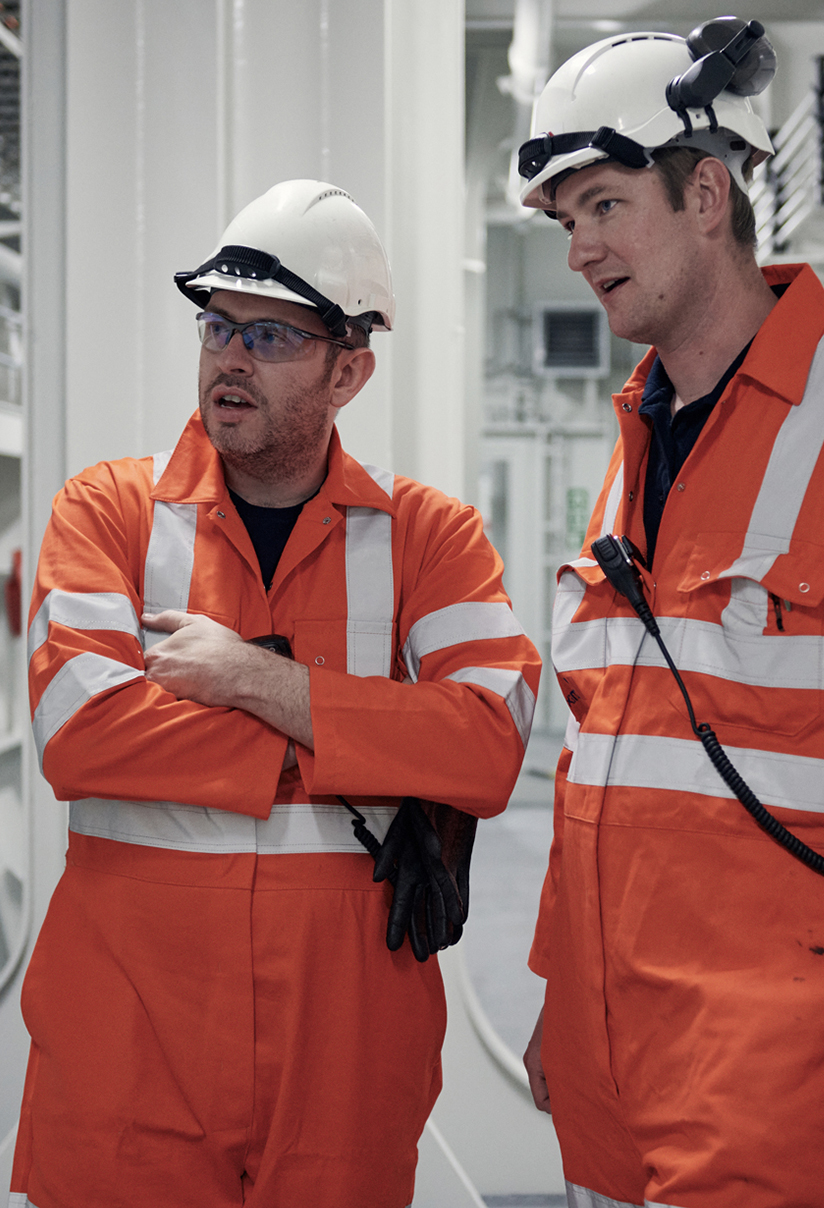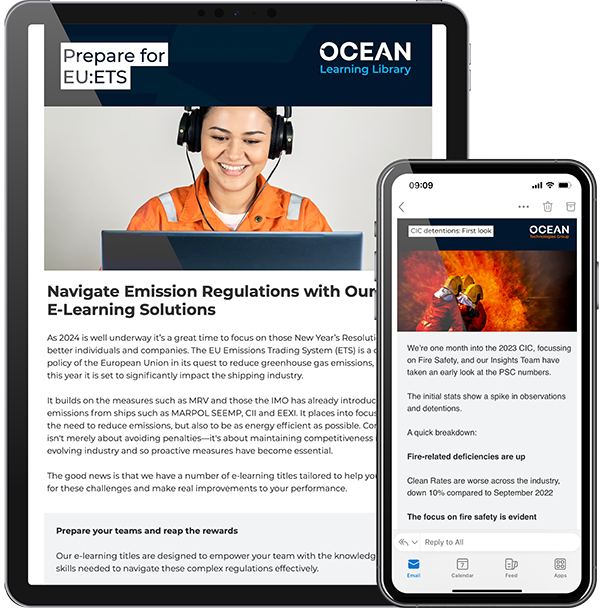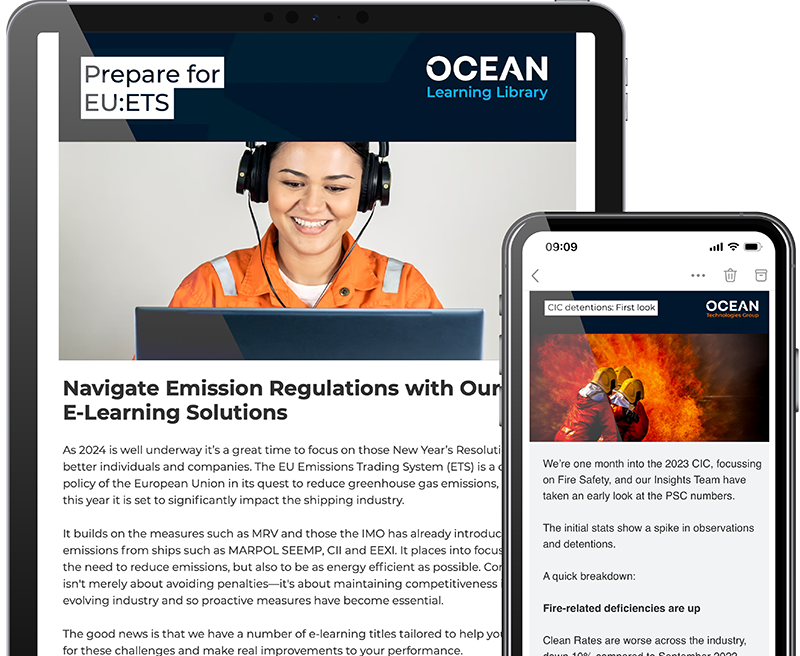Training for the Extreme: Navigating Blackouts
At sea, few challenges are as daunting as a blackout.
Whether due to technical failures, extreme weather conditions, or other unforeseen circumstances, a loss of power can transform a routine voyage into a high-stakes situation requiring skill, composure, and swift action. Training for blackouts is, therefore, an essential component of preparing seafarers to safely and efficiently handle these rare but dangerous situations.
Understanding the Causes and Consequences of Blackouts
A blackout at sea refers to the total loss of electrical power on a vessel, rendering the ship’s main propulsion and auxiliary systems inoperative. Causes can include technical failures, extreme weather, human error, or even cyberattacks. Technical failures generally refer to faults in electrical systems, generator breakdowns, or engine malfunctions that lead to sudden power loss. Human error, such as mistakes in operation or maintenance, can inadvertently cause blackouts. Extreme weather conditions, like severe storms, lightning strikes, or turbulent seas, can damage equipment and disrupt power supplies. As ships become increasingly digital, they also face vulnerabilities to cyber threats that can disable critical systems.
The immediate consequences of a blackout can be severe. Without power, navigation systems fail, communications are cut off, and essential services like lighting and ventilation cease. This can leave the vessel adrift, potentially at the mercy of strong currents, and unable to safely navigate around natural features, infrastructure or other hazards. Therefore, being prepared to handle such events is essential.

Preparing for a Blackout: The Importance of Leadership, Communication, and Training
Crisis Management: Maintaining Calm and Leadership
A blackout is a chaotic and stressful situation, making effective crisis management by leaders onboard an integral part of keeping vessels safe. Training focused on developing the leadership skills needed to maintain calm and ensure that the crew remains focused and coordinated can improve outcomes in the event of a blackout.
Understanding how your leaders will respond in high-pressure scenarios is key to reducing risk. Using ability profiling and psychometric testing will give an improved view of how individuals will behave and react in situations such as blackout. Industry-standard assessment tools such as APRO and Facet5 give managers objective insights into how candidates are likely to react in safety-critical situations.
Clear communication is critical during a blackout. During training and drills, it is important to emphasise the importance of concise and accurate information exchange to ensure that all crew members understand their roles and responsibilities. Working together as a team is essential for successfully managing a blackout, so training includes team-building exercises to better develop collaboration and trust among crew members.
The role of Maritime English in effective Communication
Clear communication during a blackout is absolutely vital, as the ability of crew members to understand each other can make all the difference in how swiftly and accurately they respond to the emergency.
In the midst of such high-pressure situations, effective communication can be the deciding factor between quickly restoring order and allowing the situation to spiral out of control. This is where a common language, such as Maritime English, becomes indispensable. Given the diverse backgrounds of many crews, a standardised language ensures that everyone is on the same page, regardless of whether English is their native language.
This shared language is particularly crucial during a blackout, when every instruction must be understood to keep the crew safe and get the ship back on track. By equipping crew members with the language skills they need, we help ensure that communication isn’t just possible but effective and reliable in those critical moments.
The Importance of Maritime Training for Blackouts
Training is essential in equipping crews to manage blackouts, ensuring they can respond effectively to minimise risks to safety and the environment. Core elements include emergency procedures, backup system activation, and traditional navigation techniques to maintain course when electronic systems fail. Communication is equally critical, with training covering the use of emergency radios and signalling equipment to coordinate assistance during crises.
Technical training is another cornerstone, focusing on diagnosing and repairing the causes of power loss. Crews learn to troubleshoot electrical and mechanical systems, restore power swiftly, and carry out preventative maintenance to avoid future failures. This comprehensive approach ensures vessels remain operationally resilient and prepared for unexpected challenges.

Regular scenario-based drills are a key component of maritime training for blackouts. These drills simulate blackout conditions, allowing crew members to practise their responses in a controlled environment. Practising responses to blackouts builds confidence and ensures that crew members are prepared to handle real-life situations. Drills help improve coordination and communication among crew members, resulting in a more efficient response to blackouts.
Advancements in technology have significantly improved maritime training for blackouts. Simulation-based training systems, for example, provide realistic and immersive, zero-risk environments in which crew members can practise their responses to blackouts. These systems allow for the creation of customised scenarios, enabling trainees to experience a wide range of potential blackout situations and develop the skills needed to handle them effectively.
Learn more about accessing Wartsila Cloud Simulation through OLP
Preparing for the Future
As maritime operations evolve, so must training for blackouts. With increased reliance on digital systems and emerging threats like cyber-attacks, ongoing investment in scenario-based training and emergency protocols is essential. By equipping crews with the skills to handle extreme situations, the industry can safeguard lives, protect the environment, and remain prepared for future challenges.
Strengthen your crew’s capabilities with expert-led maritime training.
Start exploring our learning catalogue today.

Want to be first to hear all our news?
Subscribe to our Newsletter to keep up to date!

